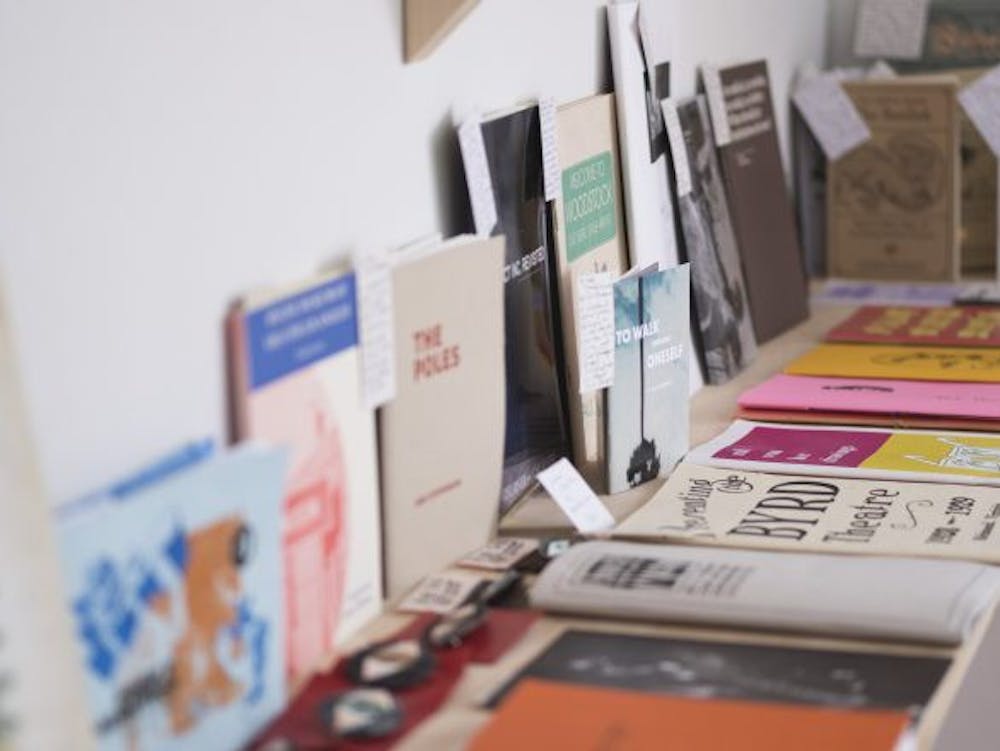For each story released online, a thousand others are mindlessly forwarded to our newsfeed. Technology and self-publishing have come a long way in diminishing the power of publishing houses, as creatives no longer need mediated channels to broadcast their ideas; they simply open their phones and type away. Such convenience, however, comes at a price: although digitization has granted these writers and illustrators means to connect, the impersonal culture of the internet makes it difficult to form genuine connections. Thankfully, the re-emerging culture of zine-making is steadily rewriting this narrative.
On Sept. 3, Chicago artists Sarita Garcia and Mel Cook hosted their own virtual zine-making workshop with the theme "Activist Illustrations and Zine Making" as part of the DukeCreate virtual workshop series.
“Zines are independent self-published tiny magazines,” Garcia said. “[They] have a life in communicating texts and images that are often radical.''
Zines give marginalized creatives an inexpensive avenue to disseminate and self-publish their ideas. While their namesake, the magazine, is made to fit the rectangular dimensions of a book, zines take on a much freer form: paper dolls, a deck of cards, a book within a book — one could even make an accordion house for a zine that raises awareness on a housing project.
The general practice of "anything goes" in zine-making guarantees artists the freedom to deep dive and play with the interpretation of their ideas. One of the attendees planned to glue together a zine with pages that become increasingly transparent to showcase his evolving perspective of the world. This impressive example does not mean the process of zine-making itself has to be complex. The simplest zine, which the community learned to make through the workshop, required only three materials: a sheet of paper, a pair of scissors and a marker. Through a simple eight-panel fold and a cut down the middle, any sheet of paper can be swiftly transformed into a pocket-sized zine, and if spread out, a foldable roadmap of sorts.
Zines offer a space where communities unite and individuals feel included. Indeed, zines do democratize publishing, but so does blogging and desktop publishing. What makes zines different?
An artist's metamorphosis into an activist or begins with mindful patterns of thinking, encouraged by zine-making. Zines may not share the same polish as their mainstream or digital counterparts, but in the craft's inherent resourcefulness and attentiveness to pressing issues, their pages culminate in a folio representative of a community.
On the internet, even the most personalized channels are plastered with brands and ads, such that a reader is likely to be skeptical upon first glance. Because of targeted ads and feed algorithms, people find themselves stuck in the same niche. Outside a few photos and typed sentences, there is no real room for connection, even among members of the same community.
Zines provide what the internet is truly lacking: authenticity and soul. Regardless of background, the art of zines embraces the stories that easily get lost in digital timelines and capitalist assembly lines, and transforms them into a tangible publication — a timeless story. They help creators map out their roles in the social ecosystem through the diversity they invite.
As they harness the tools at their disposal, these artists begin to draw answers for harder questions with their own skills and talents. Cook and Garcia did not fall short on underlining this point throughout their hour-long instruction: zines offer a collaborative framework for activism as the creator realizes the role she best plays.
"Maybe you are a storyteller or a person who loves giving care to people doing work," Cook said. "I feel like I could be a weaver, seeing lines of connectivity between people, ideas and movements, and a healer, tending to the generational traumas caused by past systems.”
Through engaging in the art of zine-making, activism will feel different depending on the type of person you are. Like conversations, one can never really predict how a zine will turn out. That is what makes zines an inclusive vessel of alternative voices and the perfect medium for every activist to regulate their beliefs and explore new ones.
Get The Chronicle straight to your inbox
Sign up for our weekly newsletter. Cancel at any time.

